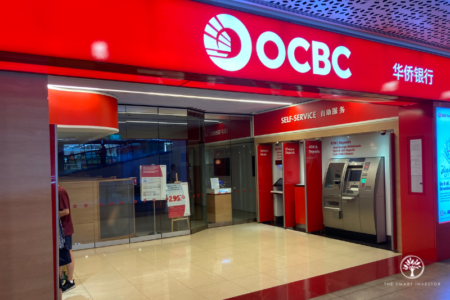It’s been more than 15 months since Singapore Exchange Limited (SGX: S68), or SGX, introduced its first set of Singapore Depository Receipts (SDRs).
SDRs are designed to provide Singapore investors with more efficient access to regional markets and the first three SDRs were Thai blue-chip stocks Airports of Thailand (SGX: TATD), CP All (SGX: TCPD), and PTT Exploration & Production (SGX: TPED).
These three SDRs were well-received and SGX expanded on this scheme by introducing five more Thai stocks back in April this year.
The stocks are Advanced Info Services (SGX: TADD), Delta Electronics (SGX: TDED), Gulf Energy Development (SGX: TGED), Kasikornbank (SGX: TKKD), and Siam Cement Group (SGX: TSCD).
Just this week, the bourse operator announced a further expansion of its SDR initiative with the launch of five new Hong Kong SDRs together with Phillip Securities.
This is the first time that SGX is launching SDRs tied to Hong Kong stocks, so what can investors expect?
New Hong Kong SDRs
The five new Hong Kong SDRs are Tencent (SGX: HTCD), BYD (SGX: HYDD), Alibaba (SGX: HBBD), HSBC (SGX: HSHD), and the Bank of China (SGX: HBND).
These securities cover a wide range of industries and can provide investors with adequate diversification.
Both Tencent and Alibaba are technology companies providing gaming, e-commerce, and social media services in China.
Tencent is China’s largest social media company capturing 90% of the country’s population while Alibaba is the largest e-commerce player in the country.
Alibaba’s Taobao and Tmall have over 800 million monthly users along with an impressive 42% market share.
On the banking front, Bank of China is a state-owned commercial bank with its net interest income derived primarily from China.
The lender support’s China’s economy through the issuance of loans and receipt of customers’ deposits.
HSBC is a global bank offering diverse financial services such as loans along with account services, cards, and fund management.
Finally, BYD offers an opportunity for investors to take part in the growth of the electric vehicle (EV) sector.
BYD is a leader in the EV space and manufactures and sells vehicles and auto-related components.
The company also produces mobile handset components for major mobile phone brands such as Samsung and Huawei.
Benefits of these new SDRs
So, you may be asking – what benefits do SDRs have?
Why don’t I just invest directly in the shares on the Hong Kong Stock Exchange (SEHK: 0388), or HKSE, instead?
First off, investors can enjoy a hassle-free experience with trading, clearance and settlement happening during Singapore trading hours and handled by Phillip Securities and SGX.
Another positive is that local brokerage and exchange fees apply, freeing investors of the need to worry about overseas trading fees, foreign exchange fees, or management fees.
Dividends will also be paid out in Singapore Dollars.
However, the most convenient aspect by far is the increased accessibility to Hong Kong stocks.
Each SDR provides holders with a beneficial interest in the underlying security and can be converted through an issuance and cancellation process.
Tencent and BYD SDRs have a 10:1 ratio to their underlying shares, Alibaba and HSBC have a 5:1 ratio while Bank of China’s SDR has a 1:1 ratio.
Each stock on the HKSE has a fixed board lot size.
For BYD, for instance, the board lot size is 500 shares, which means an investor has to cough up a minimum of S$25,000 to buy just one lot of shares with the share price currently trading at HK$296.4 (S$50.5).
With the SDR ratio of 10:1, and with a board lot size of 100 shares, investors who purchase the SDR only need to fork out a minimum of S$500 (S$50.50 divided by 10 and multiplied by 100 shares) to own a piece of the EV company.
The S$500 outlay is just a fraction of the S$25,000 required if you bought shares directly on HKSE.
Broadening SGX’s slate of securities
These new SDRs are a great way for investors to gain access to a broader range of industries at an affordable cost.
SGX’s SDR launch will also help to complement its range of structured warrants, daily leveraged certificates (DLCs), and exchange-traded funds (ETFs) that are tied to Hong Kong and China securities.
Together with the current eight Thai SDRs, this launch will increase the number of SDRs to 13.
Get Smart: Greater choice with more diversification
The Thai SDRs gave investors a window to invest in sectors such as airports, Thai telecommunication companies, and oil exploration businesses.
Now, SGX has expanded its list of SDRs to cover the e-commerce/social media sectors along with the EV industry.
Investors should rejoice as these new SDRs expand their range of investment choices and offer greater diversity, giving more options to construct a diversified portfolio of stocks that cover different sectors.
The best gift a responsible parent can give their child is a secure, comfortable financial future. And we found that dividend investing is one of the easiest and effortless methods to do it. Our latest FREE report reveals how you can do it, plus the 3 SGX stocks you can buy today to start future-proofing your child’s financial future. Click HERE to grab a copy of the guide.
Disclosure: Royston Yang owns shares of Singapore Exchange Limited.





